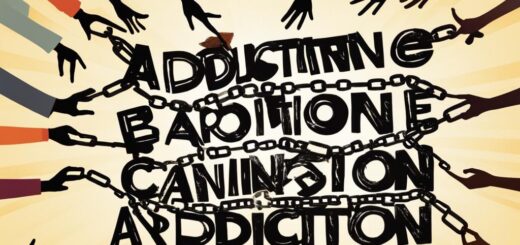Effective Recovery Programs for Addiction Help
Substance abuse and addiction are significant challenges that can severely impact an individual’s health, relationships, and overall quality of life. While the road to recovery may seem daunting, there are effective recovery programs available to help individuals overcome addiction and achieve lasting sobriety.
At our center, we understand the importance of tailored recovery programs that address the unique challenges of substance abuse. Our team of experts provides personalized support, therapy, and resources to help individuals on their journey to recovery.
Key Takeaways
- Effective recovery programs can help individuals overcome addiction and achieve lasting sobriety
- Personalized recovery programs that address the unique challenges of substance abuse are crucial
- Support, therapy, and resources are available to individuals seeking addiction help
- Recovery programs can be tailored to individual needs, including the integration of evidence-based approaches, alternative therapies, and specialized treatment plans
- Therapy plays a crucial role in the recovery process and can involve various types, such as cognitive-behavioral therapy, group therapy, and experiential therapy
Understanding Substance Abuse and the Need for Recovery Programs
Substance abuse is a complex and challenging issue that can have a significant impact on an individual’s life and those around them. Whether it’s drugs or alcohol, addiction can quickly spiral out of control, leading to physical, social, and emotional harm.
At the heart of substance abuse recovery are effective recovery programs tailored to an individual’s specific needs and circumstances. These programs aim to address the unique challenges that substance abuse presents, providing the necessary resources, support, and therapy to help people achieve lasting sobriety.
Recovery programs can include a range of treatments and therapies, from detoxification programs and peer support groups to cognitive-behavioral therapy and holistic approaches. These programs often take a comprehensive and integrated approach to address the physical, mental, and social aspects of addiction, ensuring that individuals receive the personalized support they need.
“Recovery is an ongoing process, and it requires a significant amount of effort and commitment from the individual. That’s why it’s crucial to find a recovery program that provides the right level of support and resources to facilitate a successful recovery journey.”
The impact of substance abuse on individuals and loved ones
Substance abuse not only affects the individual but also their loved ones, causing significant emotional and social harm. Addiction can strain relationships, lead to financial problems, and cause legal issues, making it particularly challenging to overcome without professional support and guidance.
Effective recovery programs recognize the impact of addiction on individuals and families, providing a safe and supportive environment for them to begin the recovery process. They offer a range of resources and services to help individuals and their loved ones deal with the emotional and psychological effects of addiction and rebuild their lives together.
By understanding substance abuse and the need for recovery programs, individuals can take steps towards a healthier, happier, and sober life. Recovery is possible, and with the right support and resources, anyone can achieve lasting sobriety.
Types of Recovery Programs and Rehab Centers
When it comes to addiction recovery, there are different types of recovery programs and rehab centers available. Residential treatment programs provide 24/7 medical and emotional support for individuals with severe addiction. On the other hand, outpatient programs offer flexibility by allowing individuals to receive treatment while still living at home and attending school or work.
Another approach to addiction recovery is through holistic techniques. Holistic recovery programs take an integrative approach to treating addiction by addressing the physical, mental, and spiritual aspects of the individual through methods such as acupuncture, meditation, and yoga.
Ultimately, the suitability of a recovery program or rehab center depends on the individual’s unique needs and circumstances.

“Choosing the most appropriate recovery program or rehab center is an essential step towards achieving lasting sobriety.”
Support and Resources for Successful Recovery
Recovering from addiction is a challenging journey and requires a strong support system to achieve lasting sobriety. That’s why there are various recovery support and resources available to individuals seeking help.
Support groups, such as Alcoholics Anonymous and Narcotics Anonymous, are instrumental in providing a supportive and non-judgmental environment for both recovering addicts and their families. These groups offer emotional support, guidance, and encouragement, helping individuals navigate the highs and lows of the recovery process.
Counseling is another valuable resource for individuals in recovery. Trained professionals, such as addiction counselors and therapists, can help individuals address underlying issues and triggers that contribute to substance abuse, work through difficult emotions, and develop healthy coping skills.
Aftercare programs, such as sober living homes and outpatient services, provide ongoing support for individuals after completing formal treatment programs. These programs help maintain sobriety and provide guidance and resources for individuals transitioning back to everyday life.
There are also various recovery resources available, such as educational materials, online platforms, and helplines. Educational materials provide information about addiction and recovery, while online platforms offer virtual support groups and resources. Helplines, such as the National Helpline, offer support and guidance 24/7.
Having a strong support system and utilizing recovery resources can make all the difference in a successful recovery journey. Don’t hesitate to reach out for help and take advantage of the resources available to you.
Customized Recovery Options and Solutions
Every individual’s journey towards recovery from addiction is unique, and therefore, requires a personalized approach tailored to their specific needs. Recovery programs that provide customizable recovery options and solutions are essential to the success of an individual’s recovery journey.
At the heart of these personalized recovery options are evidence-based approaches. Evidence-based approaches ensure that the best possible recovery solutions are being presented to individuals by utilizing research, clinical expertise, and proven methods to identify the specific needs of each person.

Alternative therapies, such as exercise, mindfulness, art therapy, and meditation, can also be incredibly beneficial in aiding a person’s recovery journey. These practices can work alongside evidence-based methods, offering a holistic and personalized approach to treatment that prioritizes mental and physical wellbeing.
“Personalized recovery solutions ensure that individuals receive the necessary support in a way that best suits their needs.”
Specialized treatment plans are another essential aspect of customized recovery options and solutions that aid in long-term recovery. These treatment plans ensure that individuals are provided with a range of interconnected services to address various aspects of their lives that may have been impacted by addiction.
The Benefits of Customized Recovery Options and Solutions
Customized recovery options and solutions offer a wide range of benefits to individuals seeking help in their addiction recovery journey. First and foremost, personalized treatment plans increase accountability by assigning a team of professionals to support the person throughout their recovery. These professionals include therapists, drug and alcohol counselors, and holistic therapist, among others.
Additionally, customized recovery solutions ensure that individuals receive the most effective treatment and that professionals are properly equipped to help them achieve their recovery goals.
Finally, as every person is unique, customized recovery solutions are crucial in addressing each individual’s specific needs during the recovery process. This tailored approach results in a higher chance of achieving long-term recovery.
The Role of Therapy in Recovery Programs
Therapy plays a vital role in recovery programs, helping individuals address the underlying causes of addiction and develop coping mechanisms to maintain lasting sobriety. Different types of therapy are employed in recovery programs, such as cognitive-behavioral therapy, group therapy, and experiential therapy, each contributing to the overall recovery process in important ways.
Cognitive-behavioral therapy helps individuals identify negative thought patterns and behaviors, replacing them with positive ones. Group therapy provides a supportive environment where individuals can share their experiences and emotions with others on a similar journey, offering a sense of community and belonging. Experiential therapy, such as wilderness therapy or art therapy, encourages individuals to explore and express their feelings in new and different ways, leading to deeper healing.
At recovery programs, therapy is often accompanied by other evidence-based approaches, such as medication-assisted treatment or mindfulness practices, to provide a well-rounded and effective treatment plan. Overall, therapy in recovery programs provides individuals with the tools and support they need to achieve lasting sobriety and lead healthy, fulfilling lives.
Conclusion
In conclusion, seeking effective recovery programs for addiction help is crucial for individuals looking to overcome substance abuse. The tailored support, therapy, and resources available through recovery programs and rehab centers can provide the necessary foundation for lasting sobriety. It is essential to understand the impact of substance abuse on oneself and their loved ones while taking advantage of the customized recovery solutions, including evidence-based approaches and alternative therapies, to address individual needs.
In addition, a strong support system and access to recovery resources, such as educational materials, online platforms, and helplines, can further aid individuals on their recovery journey. The role of therapy in recovery programs cannot be overstated, and integrating various therapies like cognitive-behavioral therapy, group therapy, and experiential therapy can contribute significantly to the overall recovery process.
We encourage those in need of addiction help to explore the available resources and treatments and create a personalized recovery plan. Know that you are not alone, and help is available. With the right support and commitment, lasting sobriety is achievable.



Recent Comments